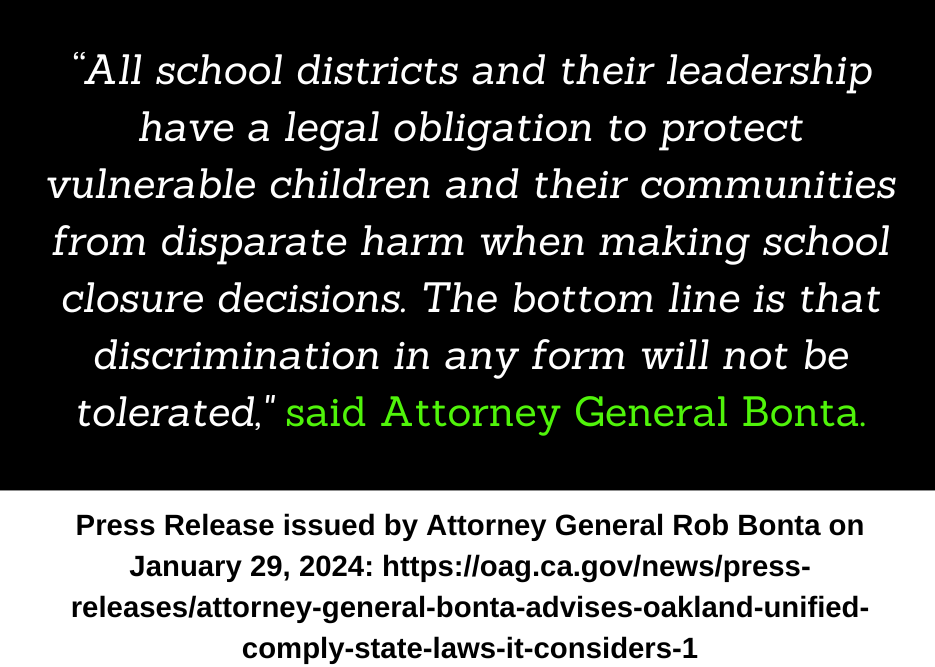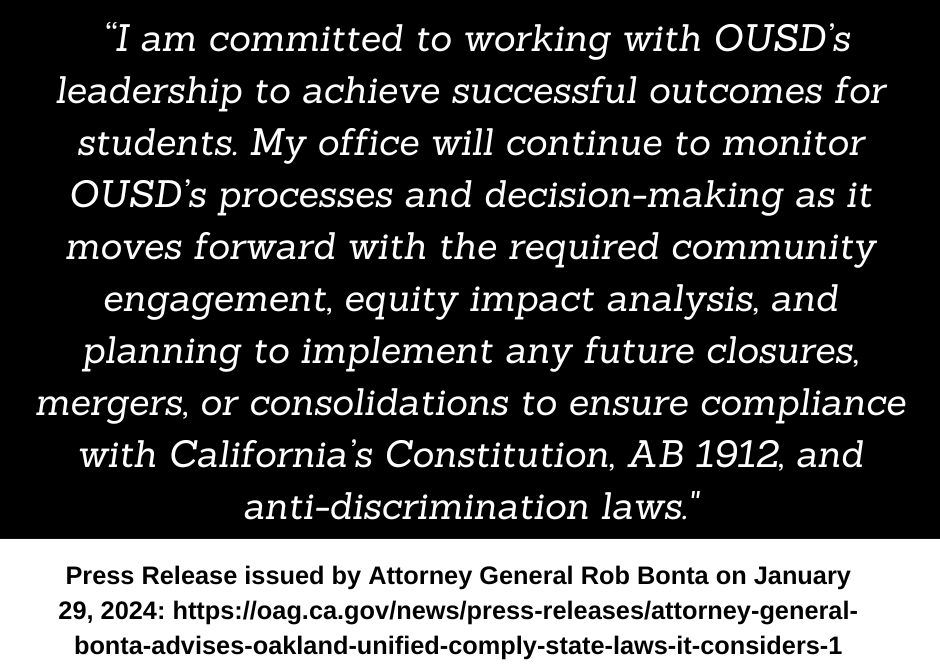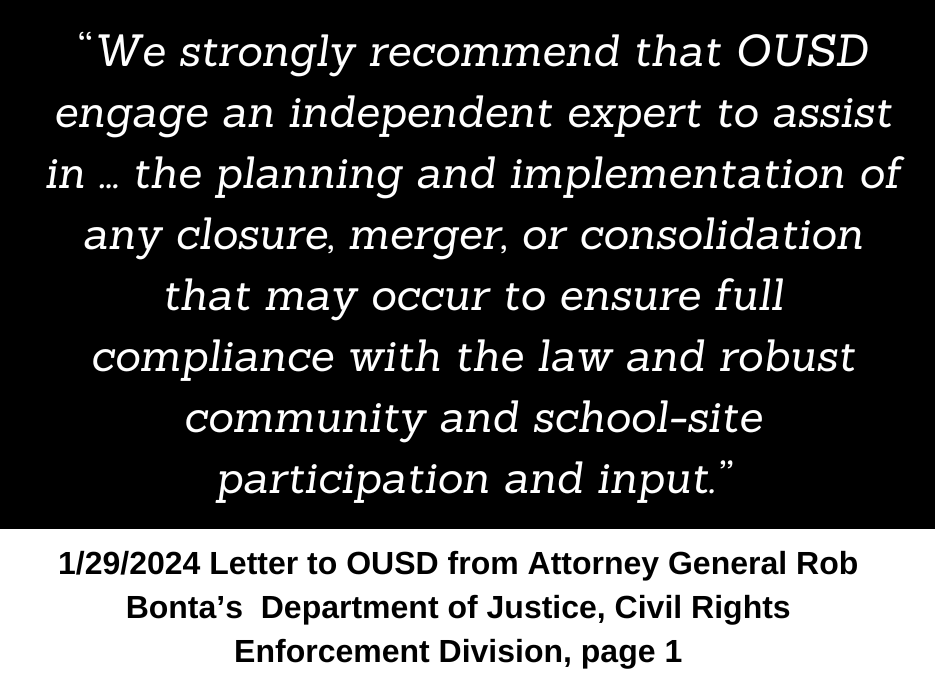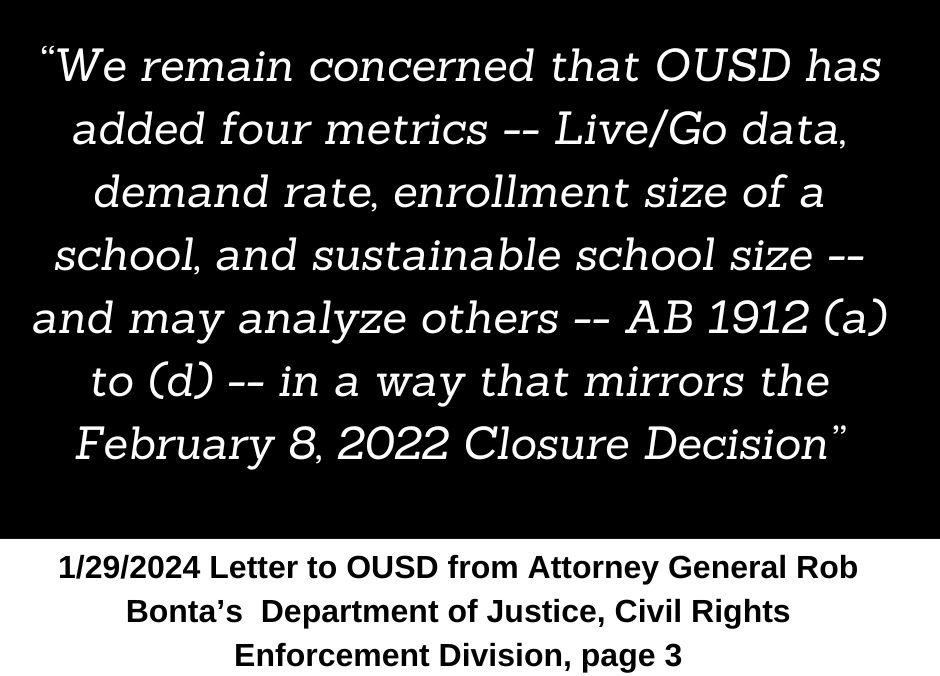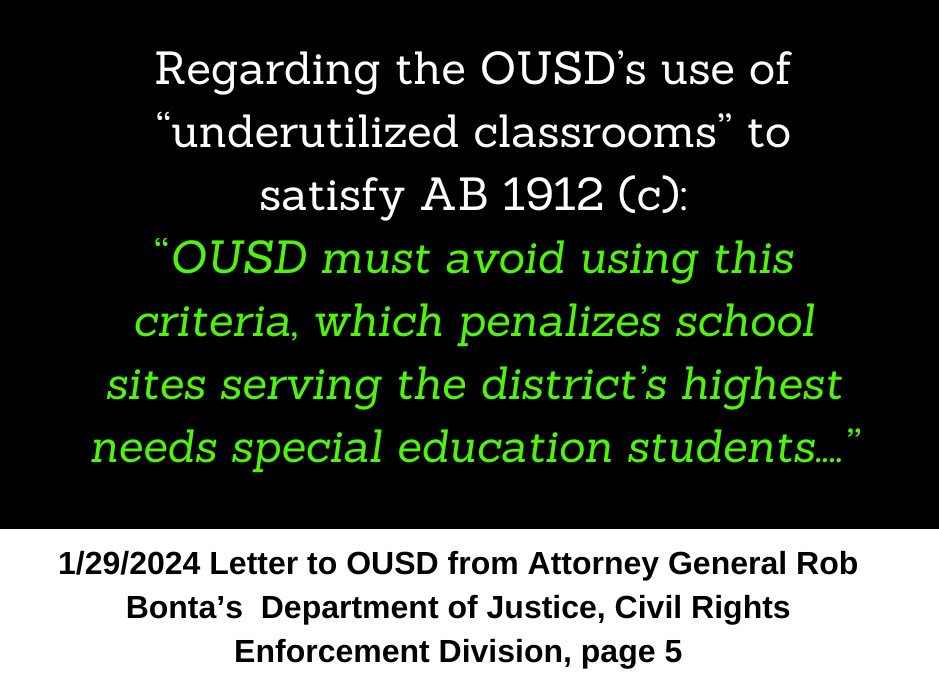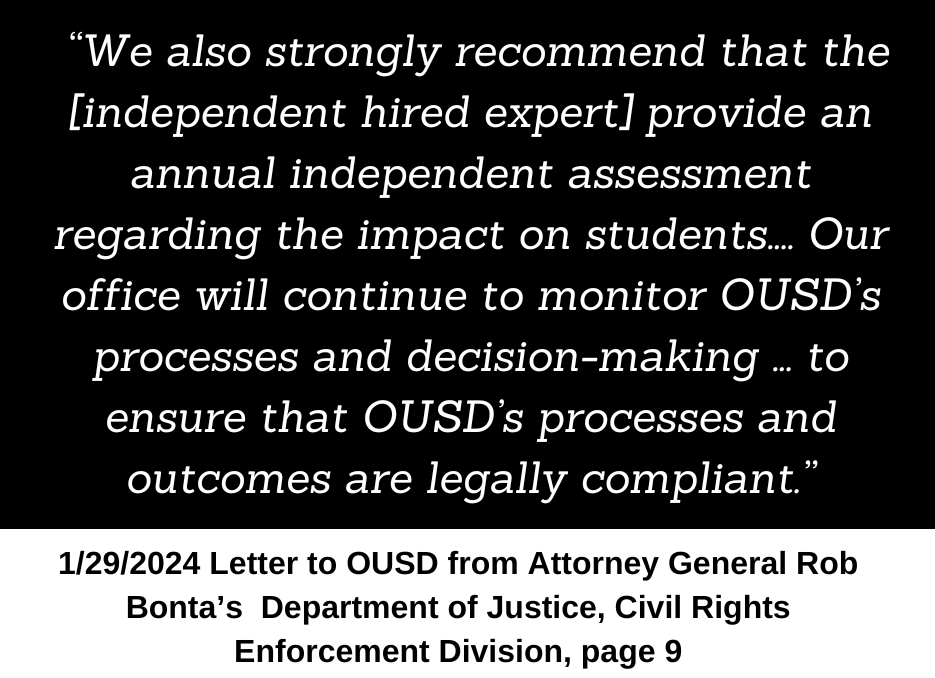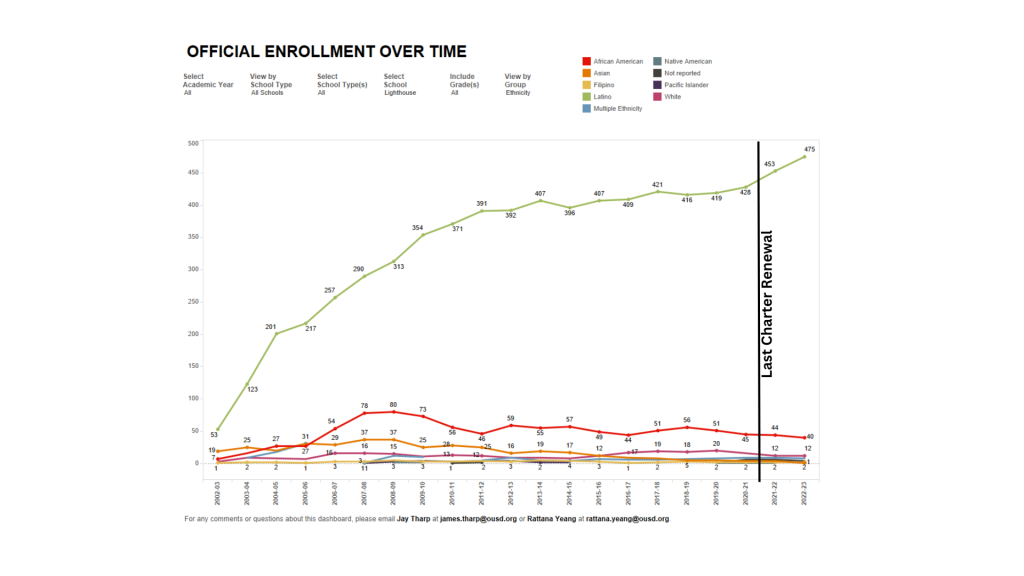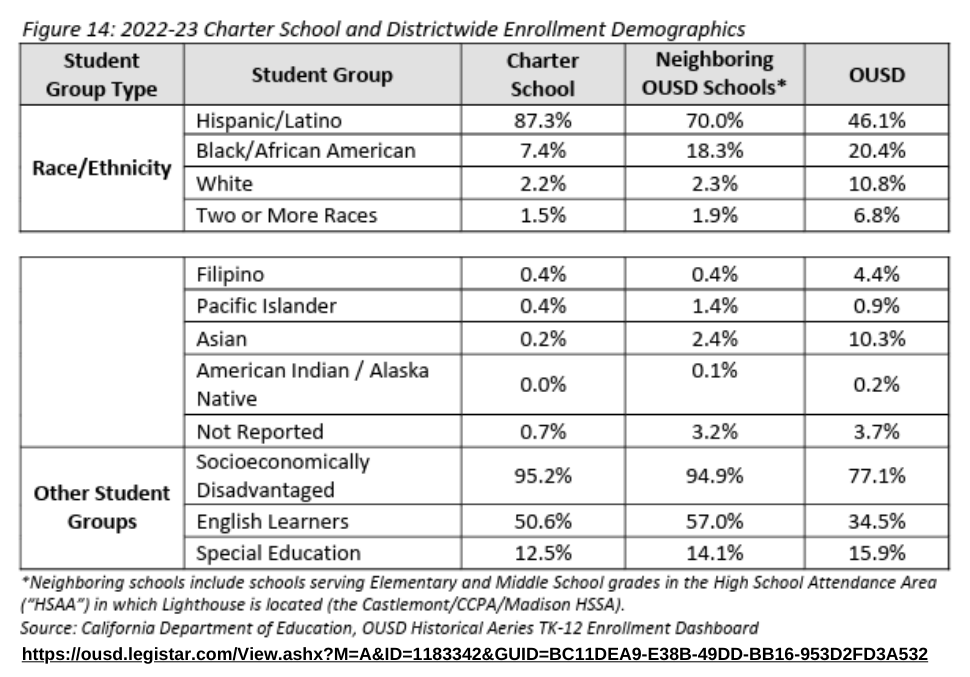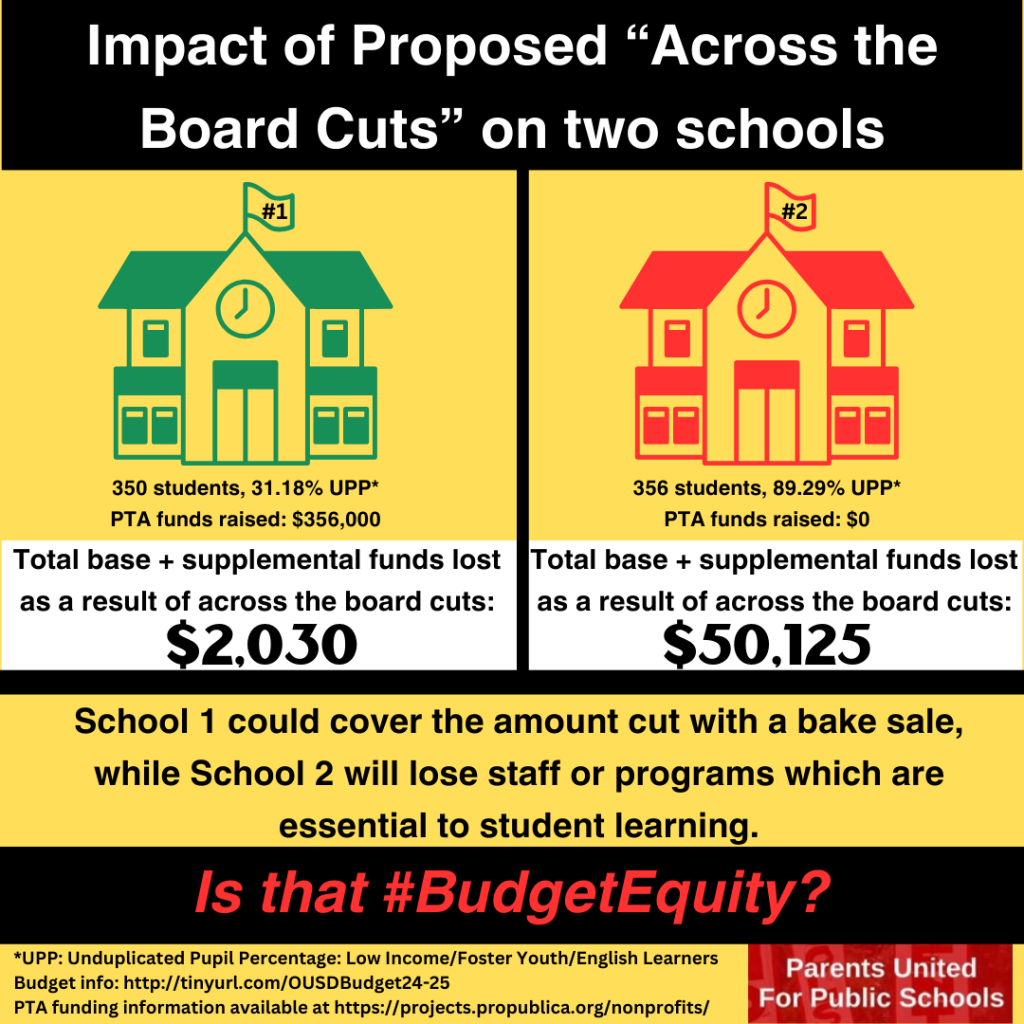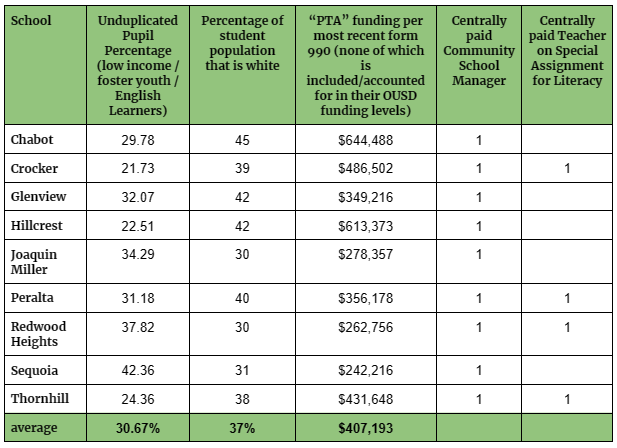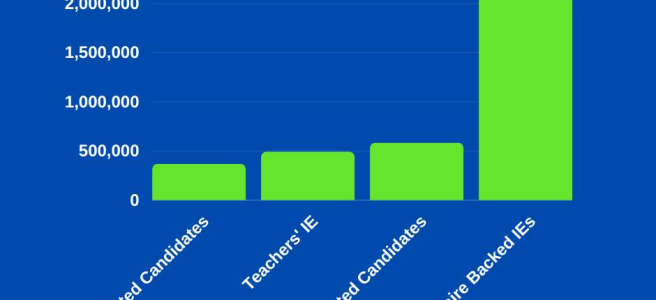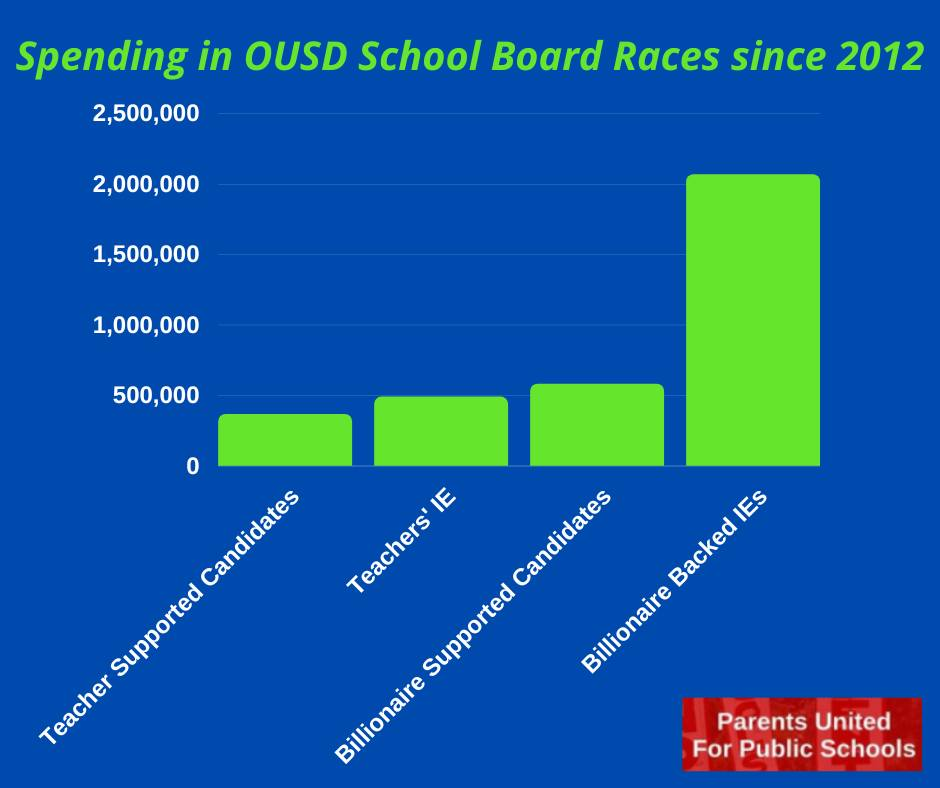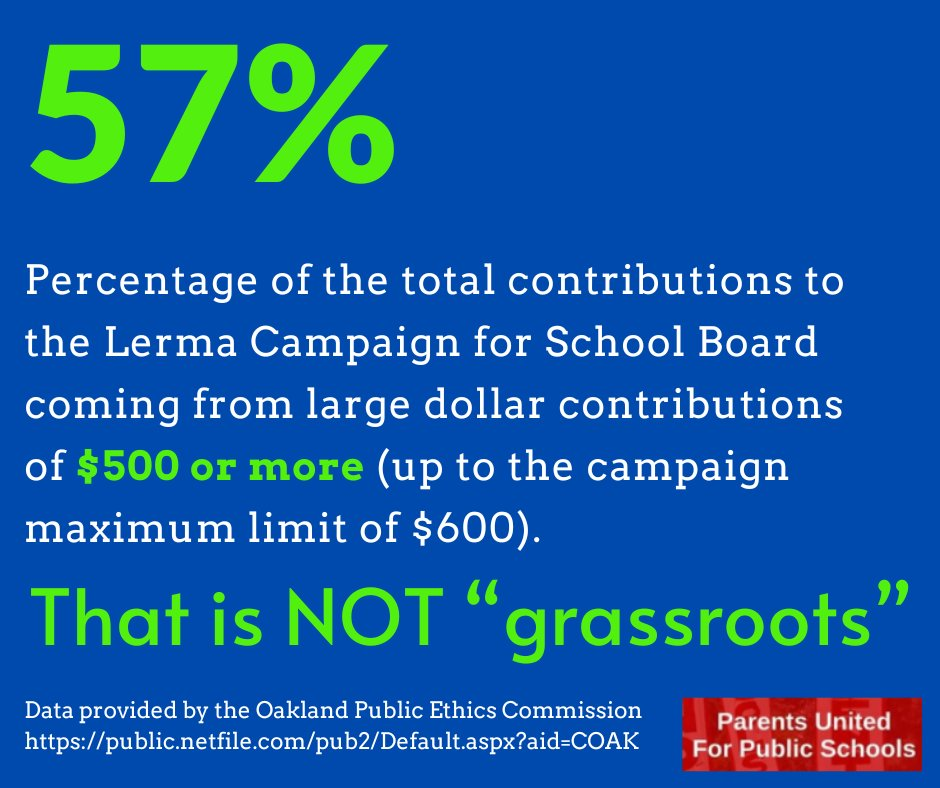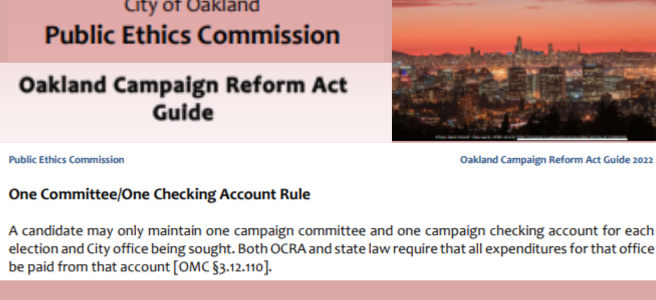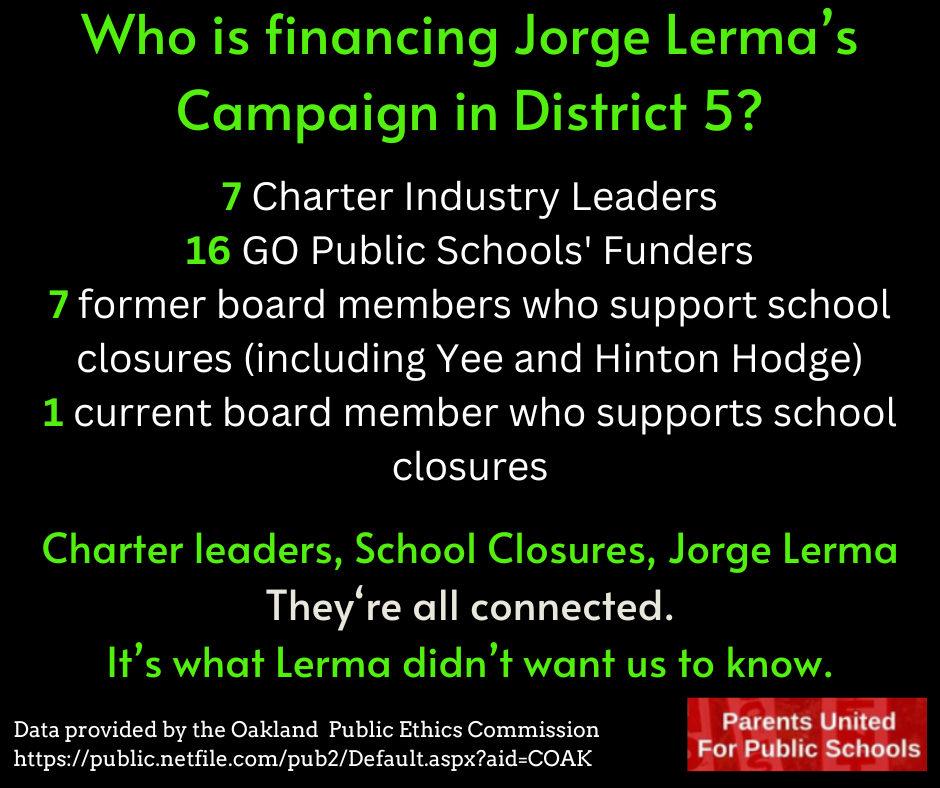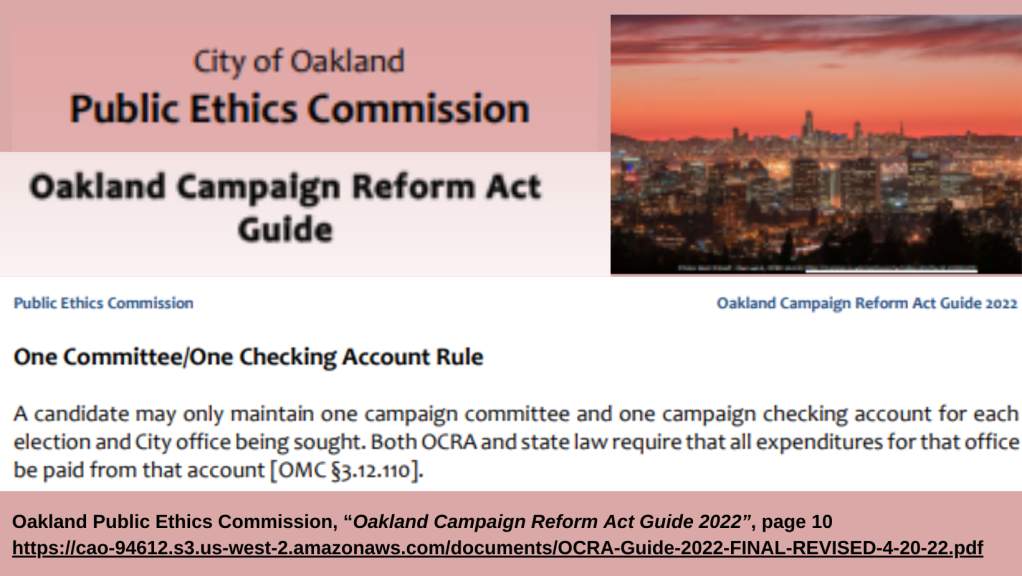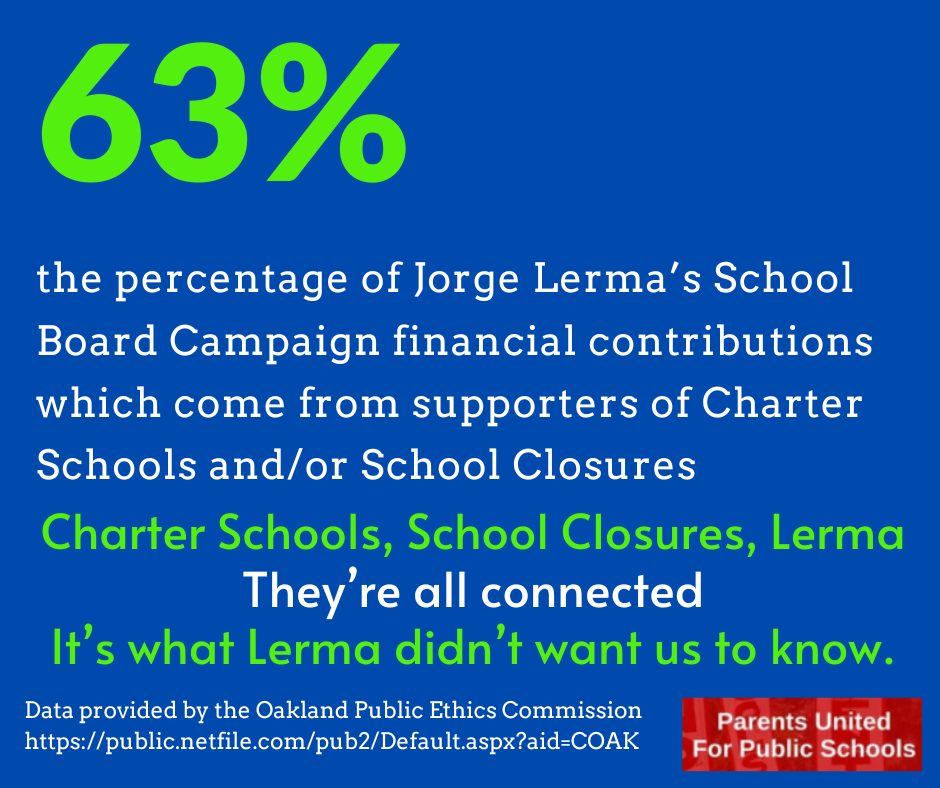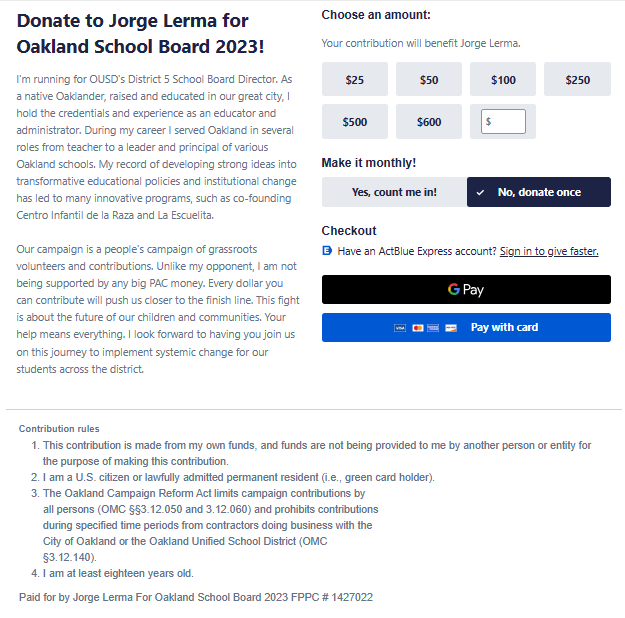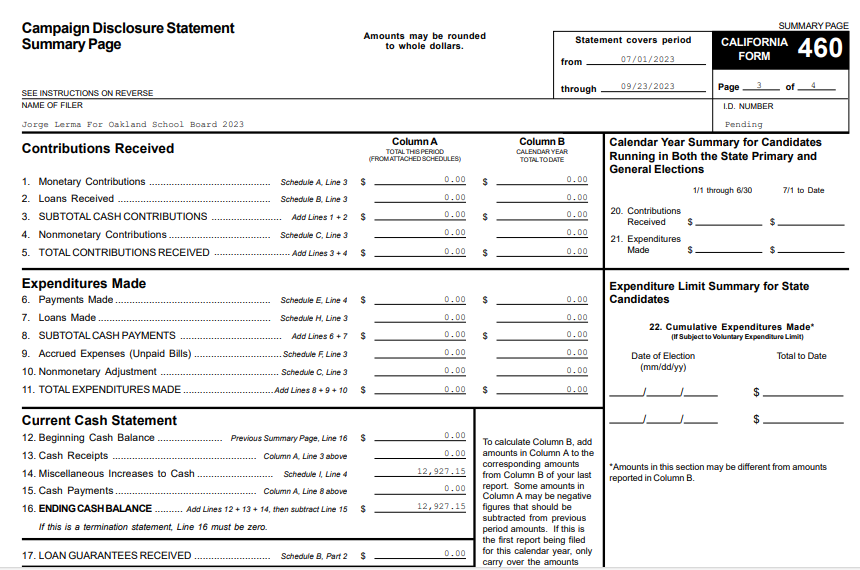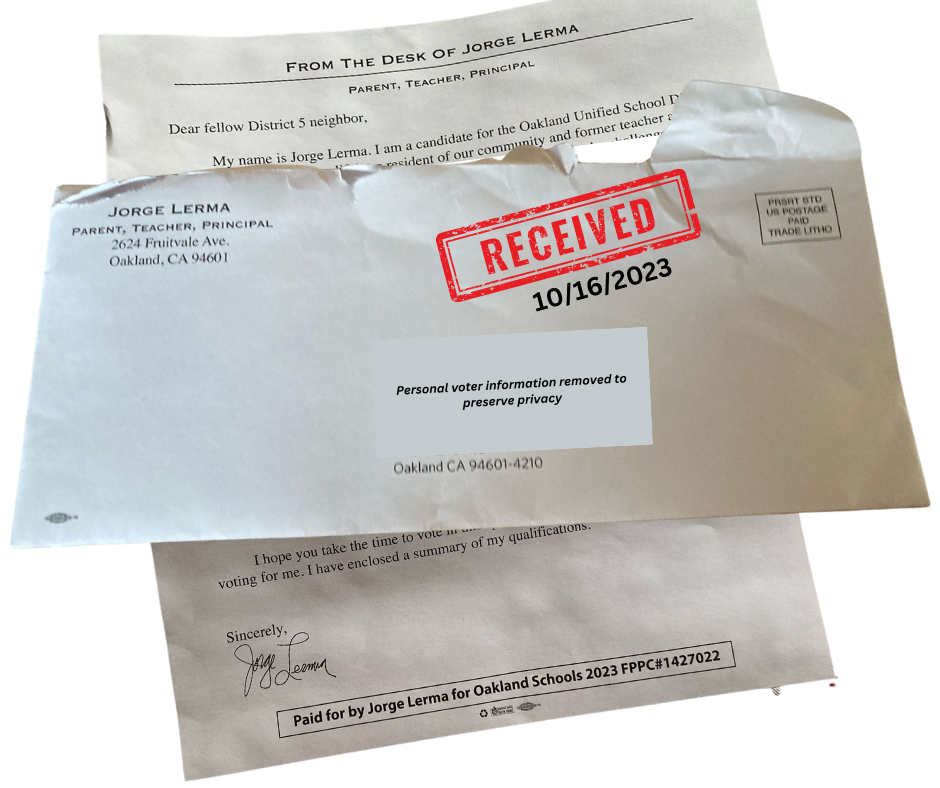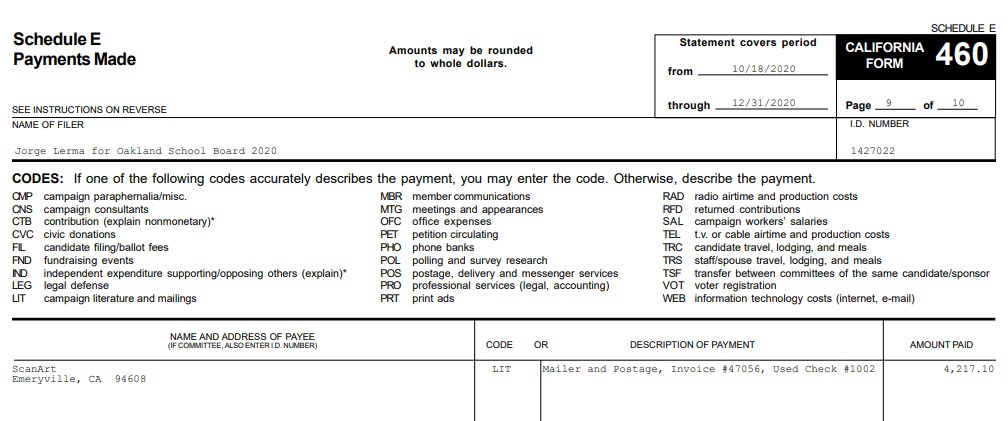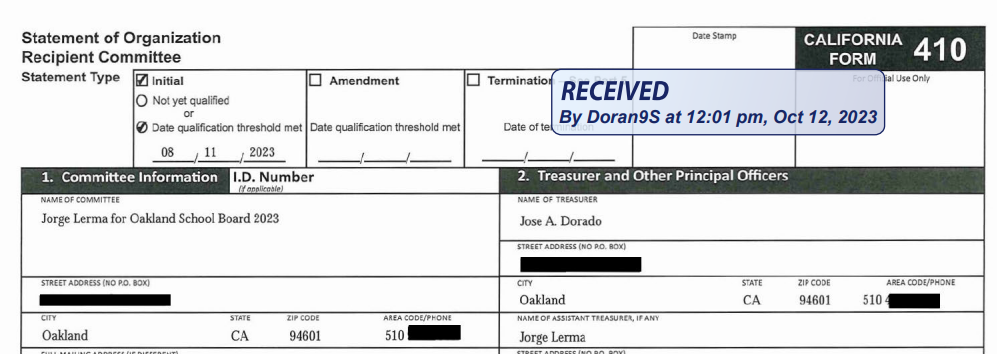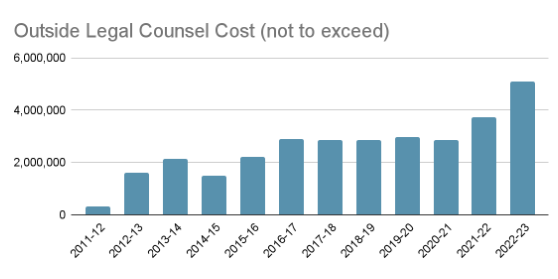
OUSD has a long history of school closures in Black communities that have accelerated gentrification and resulted in disproportionate harm to Black students.
Oakland Unified School District (“OUSD”) has closed many schools over the past twenty years, following a pattern of using so called “Sustainability” metrics: utilization and enrollment data. In a 2004 discussion about school closures, former school board member Gary Yee articulated that “[t]he primary concern for any school site reutilization was that the school is effective and relatively inexpensive to run.”1 That philosophy reinforced racist and ableist patterns and behaviors and resulted in the devastation of the Black student population in OUSD over time.

In February of 2022, the OUSD board voted to close schools over two years, again using the same kind of “Sustainability” metrics as the selection criteria, and once again disproportionately harming Black, low-income and Disabled students.

AB 1912 and the AG investigation grew out of the February 2022 closure decision, and led to the currently proposed Equity Impact Metrics to be presented to the board this week for adoption.
In response to the closure decision, the American Civil Liberties Union (“ACLU”) filed a complaint2 with the California Attorney General (“AG”) alleging that the school closures violated the constitutional and statutory civil rights of Black students in OUSD. The AG opened an investigation into the closures sometime in 2022, and Assemblymember Mia Bonta authored a law (“AB 1912”) requiring an equitable process before deciding to close schools.3 In January, 2023, a newly elected OUSD Board majority rescinded the closure decision for those schools set to be closed in June, 2023 and then voted to “merge” 10+ schools at the end of the 2023-24 school year as part of their budget development, which triggered the need for the AB 1912 equitable process.
OUSD staff presented the Equity Impact Metrics to the Board January 10, 2024 including the same racist and discriminatory “Sustainability” metrics that have been used since 2004, which resulted in a letter from the AG’s office dated January 29, 20244 outlining the AG’s concerns with those metrics. After failing to adopt the identical metrics on March 27, 2024, the OUSD State appointed Trustee warned the board that because they failed to take the steps necessary to “merge” 10+ schools as promised in the 2023 budget resolution, the Trustee would not allow them to negotiate compensation increases for OUSD union employees. In response, Board President Sam Davis has scheduled a vote on a revised set of metrics this Wednesday, April 10th.
What guidance did the AG provide to OUSD? We summarized it so you don’t have to.
So what does the AG have to say about the SPECIFIC metrics that OUSD is proposing?
We are grateful to staff and the Board for removing the four “Sustainability” metrics from the proposal that the AG made clear would repeat the same disproportionate harm as in past years. But the proposed metrics also include other metrics that the AG found problematic or incomplete. The Board should heed the following advice from the AG.
The AG will continue to monitor OUSD as they plan for mergers next year, and any closures or consolidations in the future. OUSD MUST ensure that they take actions that are constitutional, legally compliant, and repair harm to Black and Disabled students rather than replicate it.
We urge the board to make additional changes to the metrics necessary to ensure that they comply with the constitution, the law and the guidance of the California Attorney General. We also urge them to mandate a robust and transparent community input process throughout any decision-making or implementation process.
- OUSD board minutes 1/4/2004 ↩︎
- https://www.aclunc.org/sites/default/files/2022.04.11_J4OS_Complaint_to_AG%20Bonta_re_OUSD_Closures.pdf ↩︎
- https://oag.ca.gov/system/files/media/letter-school-districts-school-closures-04112023.pdf ↩︎
- https://oag.ca.gov/system/files/attachments/press-docs/CalDOJ.LettertoOaklandUnifedRePotentialClosures.1.29.24.final_.pdf ↩︎


